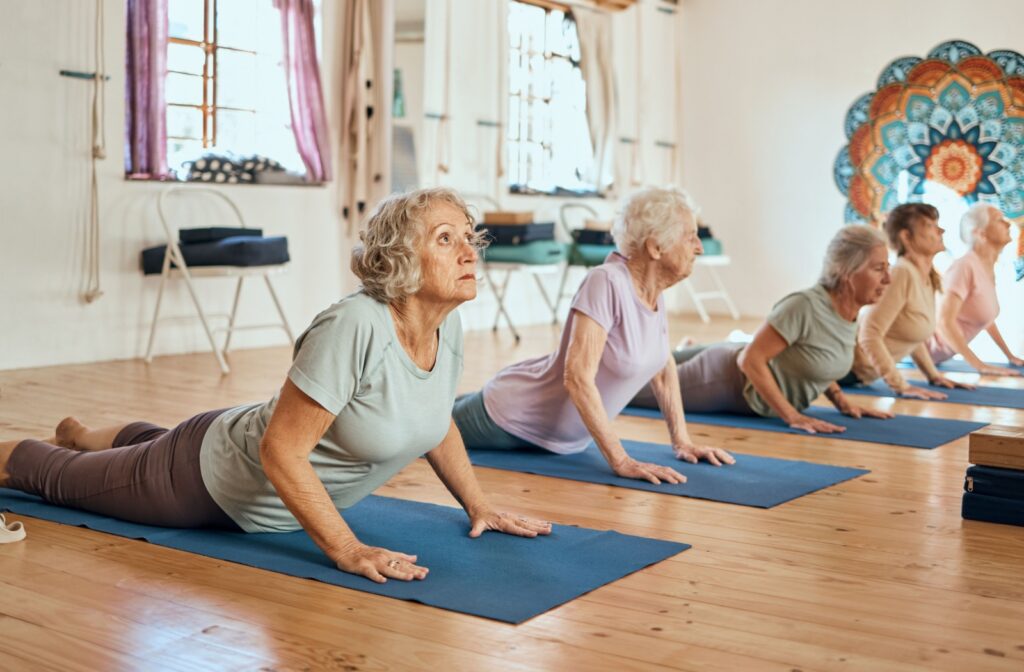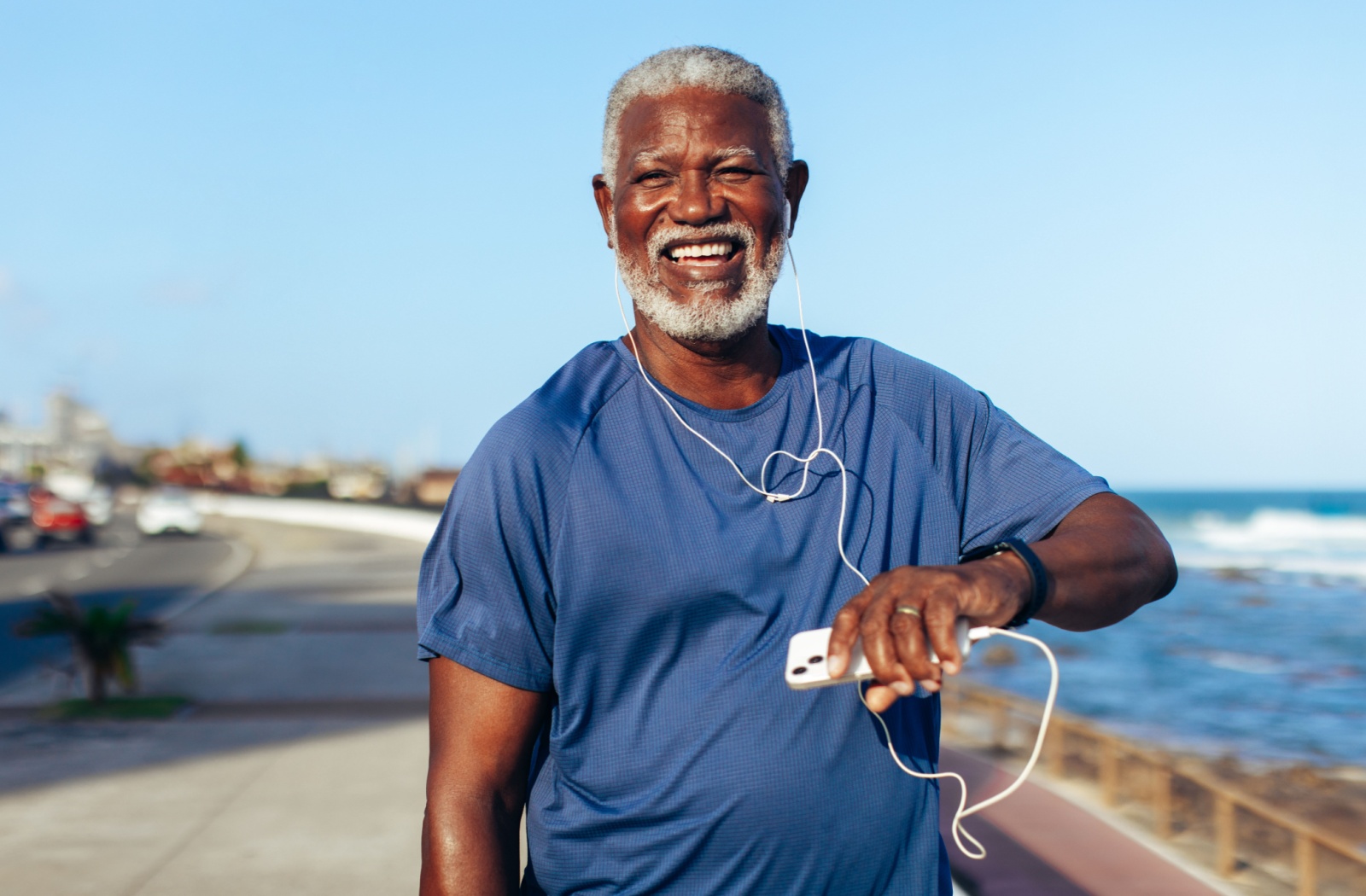The connection between physical activity and memory is one of the most exciting fields in modern health research. For seniors, staying active can be much more than maintaining muscle and bone strength or preventing aches.
Physical activity increases blood flow to the brain, helping to stimulate brain cell growth and support brain plasticity, which are key components of helping improve memory. Exercise is vital in keeping the mind sharp, boosting cognitive function, and improving overall quality of life.
The Connection Between Exercise & Cognitive Function
Physical activity impacts the brain in numerous ways, helping to slow cognitive decline and even improve memory. Here’s what happens behind the scenes when we move our bodies.
Increased Blood Flow
Exercise improves blood circulation, delivering oxygen and nutrients to the brain more effectively. This enhanced blood flow supports brain areas responsible for memory and learning, such as the hippocampus.
One of the most profound effects of exercise is its ability to support the hippocampus, the part of the brain involved in memory formation. Studies show that regular aerobic exercise, such as walking, can increase the size and improve function of the hippocampus in seniors.
Brain Cell Growth & Connectivity
Regular physical activity helps promote neurogenesis (the creation of new brain cells). It also strengthens connections between existing brain cells, enhancing the brain’s overall performance and adaptability.
Reduced Inflammation & Improved Cognitive Function
Inflammation in the body and brain is linked to several age-related cognitive issues, including memory loss. Exercise can help reduce inflammation, creating a better environment for brain function.
Improved Mood & Sleep
Physical activity stimulates the release of endorphins, improving mood and reducing stress. It can also regulate sleep patterns, essential for memory consolidation and overall mental health.
Types of Exercise for Memory Improvement
Regarding enhancing memory, not all forms of physical activity are created equal. Here are some of the most effective types of exercises for cognitive benefits.
Aerobic Exercise
Also known as “cardio,” aerobic exercises like walking, swimming, and cycling elevate your heart rate and boost blood flow to the brain. Studies indicate that seniors who engage in regular aerobic activities often experience slower cognitive decline.
Resistance Training
Lifting weights or engaging in bodyweight exercises like squats and push-ups can strengthen your muscles and brain. Resistance training can help improve executive functions such as planning and decision-making.
Mind-Body Exercises
Yoga, tai chi, and Pilates are excellent mind-body exercises that combine gentle physical movement with a focus on breathing and mindfulness. These activities can help reduce stress and enhance cognitive function, especially memory.
Balance Training
Activities like tai chi and specific yoga poses focus on balance and coordination. These exercises enhance physical stability while stimulating the brain’s motor systems and memory centers. Balance exercises also help seniors stay independent longer, supporting their confidence.
How Physical Activity Supports Those with Memory Issues
For individuals facing cognitive challenges such as dementia or Alzheimer’s, physical activity plays a crucial role in maintaining mental acuity and emotional well-being. Here are some ways it can provide support.
Tailored Fitness Activities
Fitness programs designed for memory support often include low-impact activities that are easy to follow, such as walking groups or chair exercises. These are safe yet effective ways to keep the body and brain engaged.
Routine & Familiarity
Older adults and their caregivers can build exercise into daily routines, especially for individuals with memory issues. Repeating familiar movements can create a comforting sense of normalcy.
Improved Mood & Socialization
Group fitness activities provide opportunities for social interaction, which can reduce feelings of isolation and depression common among those with memory concerns.
How Memory Care Programs Integrate Physical Activity

Physical activity is carefully integrated into daily routines at specialized memory care communities to support cognitive function and overall quality of life.
For example, memory care at All American Assisted Living at Wareham offers tailored routines and engaging activities for residents with cognitive impairments.
Routine-Based Movement
Establishing a routine is critical for those with memory issues. Memory care programs create structured schedules incorporating daily physical activities, such as morning yoga or afternoon nature strolls.
These routines provide consistency, helping residents feel more grounded and secure.
Group Activities
Group exercises foster a sense of community while promoting physical health. Residents can participate in group activities like dance classes, tai chi, or gardening, combining low-impact movements with socialization.
Personalized Plans
Memory care programs design individualized activity plans for each resident’s abilities and interests. A tailored approach supports every resident’s needs, regardless of physical or cognitive condition, so they can engage in activities that benefit their mind and body.
Dedicated & Trained Staff
Memory care communities employ specialized teams trained to encourage physical activity in a safe and supportive manner. Staff members guide residents through exercises, helping them feel confident and comfortable throughout their wellness routines.
Staying Active for Cognitive Health
Physical activity is one of the most accessible and effective ways to improve memory and slow cognitive decline in seniors. Movement profoundly affects the body and mind, whether through aerobic exercise, mindful yoga sessions, or tailored memory care programs.
At All American Assisted Living at Wareham, your loved ones can enjoy a selection of thoughtfully designed events and activities to help them maintain a routine and normalcy. Contact us today to learn more about how our memory care can support your loved one’s physical and mental health.





